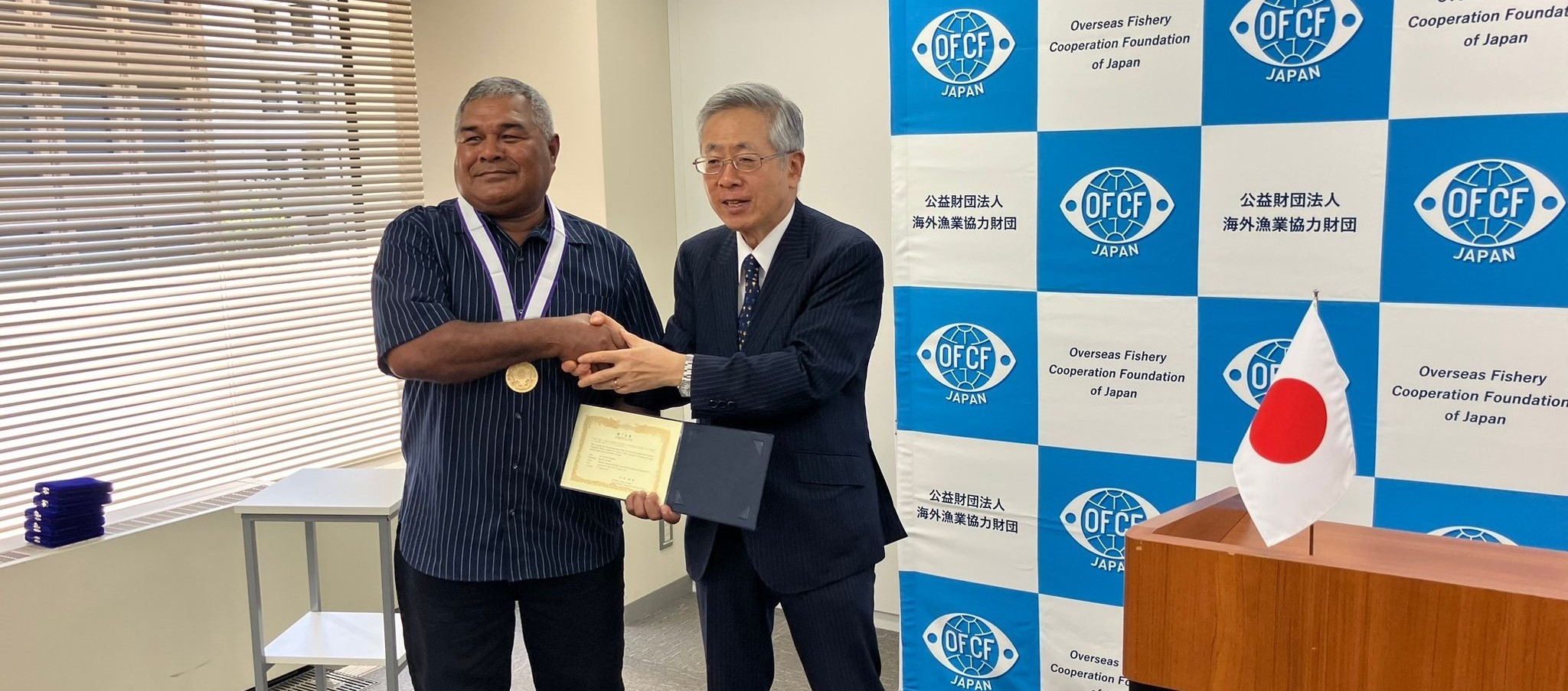- Other
- PICRC staff
- Research
PICRC Research Assistant attends Training Course on Small-Scale Longline Tuna Fisheries in Okinawa
From July 28 to August 5, PICRC Research Assistant, Geory Mereb attended a training in Okinawa on small-scale longline tuna fisheries. Through the course he gained insight into the tuna industry and grading system, its importance as a commercial industry, and its future outlook.
The stocks of four tuna species in the Western and Central Pacific Ocean collectively form one of the world’s largest and most valuable fisheries. This fishery supplies roughly 60 percent of the world’s tuna and is an important resource for small-scale fisheries. Longlining is a common fishing method used to obtain catch and is effective at targeting pelagic species. Once caught, tuna is individually graded and directed to its most appropriate market use. Tuna grading is an important process and typically judged on the tuna’s initial appearance, size, shape, color, texture and fat content. This gives an indication of its quality and market value which is imperative to ensure fairness across the tuna industry.
Geory had the opportunity to undertake technical training on tuna processing, grading, sanitation and received invaluable advice on past lessons learnt in the industry. Geory stated, “this training has helped me gain knowledge and skills to become a certified fish grader in Palau; providing sanitation management and grading services to private sectors and local businesses.”
Through the course he also received advice on effective management of small-scale tuna fisheries and exchanged views about the future cooperation of the industry. “With climate change and overfishing threatening global tuna populations, it is important to manage coastal fish habitats and fish stocks to ensure that these resources continue to supply fish for food security,” said Geory.
This opportunity was made possible with funding provided by the Overseas Fishery Cooperation Foundation of Japan and the Ministry of Agriculture, Fisheries, and the Environment.


